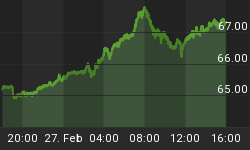Japan's 11 March catastrophe at its six-reactor Daichi Fukushima nuclear power complex has had global repercussions, hardly surprising given the trillions of dollars invested in civilian nuclear energy over the last five decades. Ironically, just a year ago the nuclear power industry saw itself on the verge of a renaissance, with worldwide concerns about global warming causing many to reconsider the merits of nuclear energy, which produces no greenhouse gases.
Events in Japan changed all that, and hit the "big three" exporters of civilian nuclear power technology hard - the U.S., France and the Russian Federation.
While the first two may have thrown up their collective hands in despair Moscow is rising to the challenge, seeing a potential silver lining in the nuclear cloud.
Quite aside from finishing Iran's controversial Bushehr nuclear reactor, Russia's nuclear industry is now offering a wide variety of services, from constructing NPPs to decommissioning them.
Last week Chilean Senators Guido Girardi, Jorge Pizarro, Fulvio Rossi and Gonzalo Uriarte flew to Moscow, where they met with various high level government officials, including Russian Energy Minister Sergei Shmatko, who, according to a report in Santiago's "El Mercurio" reportedly "surprised" the delegation by offering to build a nuclear plant in Chile. The nonplussed South American legislators responded that after the events in Japan it was "unthinkable" to build in Chile because the idea faced "great public opposition." Ever willing to be accommodating, Shmatko then promised his help in developing a pilot project for tidal energy in Chile.
Such shilling aside, Russia's state nuclear concern Rosatom according to its press office has formed a special company, Rosatom Finance, to provide foreign currency funding to its enterprises. Rosatom Finance is registered in Cyprus and is wholly owned by OJSC Atomenergoprom and will provide financial support to Russian companies involved in nuclear energy such as CJSC Atomstroiekhsport, which builds nuclear power plants abroad, nuclear fuel producer TVEL and nuclear materials exporter Techsnabekhsport, among others.
Working the anti-nuclear side of the street however, which has grown far broader in the last four months, Rosatom has recently been in discussions with Germany's Siemens on a broad array of nuclear issues, including assisting in closing down Germany's nuclear power plants. Ever upbeat, Rosatom Deputy General Director Kirill Komarov told reporters, "We can look at different types of partnership, not just nuclear reactors, but at nuclear medicine or the closure of nuclear power plants."
Komarov's roseate comments build on more than two years of contacts, as in 2009 Siemens and Rosatom announced plans to work together to build nuclear reactors, but the incipient partnership was subsequently scuttled because of objections made by French nuclear company Areva, a former partner of Siemens, which saw the proposed Berlin-Moscow nuclear axis as a breach of a contractual non-competition clause.
Despite previous jealousy from Paris, Areva like a coy coquette is now in fact a partner with Rosatom and according to Komarov, part of a consortium supplying the Belene nuclear power plant in Bulgaria. Ever the optimist, Komarov added that Rosatom is "ready to discuss new wide-ranging relationship options with Areva, from mining uranium to fourth generation reactors."
Russia is positioning itself to become the Home Depot of the global civilian nuclear industry, offering everything from construction to decommissioning. It would seem in Moscow that every cloud, even those laden with cesium-137, has a silver lining, or at least one lined with euros.
By. John Daly of OilPrice.com















